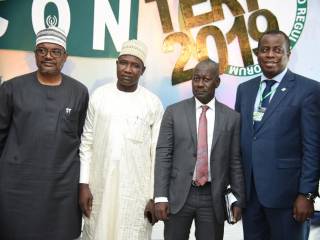N
The Executive Vice Chairman and Chief Executive (EVC/CE) of the Nigerian Communications Commission (NCC), Prof. Umar Danbatta has said that the generational changes in Information and Communication Technology (ICT) have continued to redefine the dynamism of the telecommunications industry.Danbatta explained that such changes have resulted in a paradigm shift from a voice-dominated technologies (1G - first generation) to data-dominated technologies such as second generation (2G), third generation (3G), to the fourth generation 4G and to the promising fifth generation (5G), which is expected to drive future telecoms services.
The EVC, who spoke through Mohammed Babajika, NCC's Director of Policy Competition and Economic Analysis at the Telecom Executives and Regulator Forum (TERF) organised by the Association of Telecoms Companies of Nigeria (ATCON) in Lagos, also stated that the NCC's roadmap for broadband has created new frontiers for investment in new technologies. He emphasized the fact that the desire for investment in the telecommunications sector will continue to grow as the size of the network increases.
Also in a reflection on the evolution of Over-the-Top (OTT) technologies such as WhatsApp, Facebook Messenger, IMO, Viber, Skype and others - which are contents delivered over the Internet, and which are increasingly supporting future service models that are rapidly expanding across multiple communications and digital services domains - Danbatta said these trends have brought more dynamism into the industry regulations as well as posed challenge to licensed telecoms players to develop new business models for their sustainability.
Amplifying Danbatta's voice, Sonny Aragba-Akpore, Head, Media Management, who represented Dr. Henry Nkemadu, Director Public Affairs, stated that OTTs are global players which are technology-based and whose operations have resulted in tremendous revenue losses to mobile network operators (MNOs), especially in developing countries. Accordingly, he charged the MNOs to “begin to think outside the box in order to find out how they can accommodate OTTs in their scheme of operations and to effectively regulate OTTs, we must think outside the box.”

